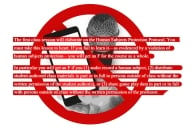You have /5 articles left.
Sign up for a free account or log in.
BOSTON -- Mentoring can be highly effective for students and “immensely satisfying” for professors, but the practice is ignored in graduate course work and unrewarded in a professor's workload, a panel at the American Historical Association said here Friday.
“In some ways, mentoring is just good teaching,” said Will Benedicks, a professor of history at Tallahassee Community College. He and others on the panel described mentoring -- the act of guiding and shepherding students outside class -- as taking many forms. It can be informal and take place during a single visit during office hours, or it can be a more deliberate process that stretches out over years.
Good mentor-student relationships are rooted in the same precepts as good teaching practice, said Steven Volk, a professor in Oberlin College's history department and director of its Center for Teaching Innovation and Excellence. The process, when done effectively, entails asking questions of students instead of supplying answers, entering into a dialogue instead of a monologue, and giving students some control rather than trying to exert it oneself. “The relationships here are not about you,” he said. “They're about your students.”
At its best, mentoring should be tailored to each student, and be open, honest and direct, the panelists said. Benedicks described how he shares with his students his own life story as a Vietnam veteran who returned to college at 30 -- when he was ready to do so. It is a way to show struggling traditional-age students that they need to think about college in the context of their life's path. “For many students, you are the first adult-to-adult relationship that they've had,” said Benedicks. “Essentially, mentoring at a community college is helping students establish the template for their academic career -- somewhere else.”
Though the session was sparsely attended, its subject matter echoes a wider theme: the growing importance of faculty-student connections to a student's sense of engagement and eventual success. Indeed, the National Survey of Student Engagement asks several questions regarding faculty-student interaction which it uses to measure institutions.
Unfortunately, tenure committees and administrators tend not to formally recognize the importance of providing mentoring to students, and faculty members are seldom rewarded for it -- financially or otherwise -- said the panelists, who represented institutions from the open-access (Tallahassee Community College) to the elite (Oberlin), public and private. This observation was consistent among both the rookie and veteran professors on the panel.
But newly minted professors described their own set of difficulties. They have an especially head-spinning transition -- from their former role as graduate students and recipients of advice to faculty members occupying positions of authority. Nicole Phelps, assistant professor at the University of Vermont, talked about the surreal experience of seeking counsel from her dissertation adviser on the phone one night and, the next day, fielding a similar question from one of her students. Recognizing the unfamiliarity of much of the job, Phelps said, she started reserving two hours each week so that she could adequately deal with the unexpected.
Many of the finer points of mentoring, and teaching more generally, came as unexpected to Laurie Hochstetler, assistant professor at Western Washington University. Hochstetler, who earned her doctorate from the University of Virginia, said teaching is generally treated as an “afterthought” in research-focused institutions -- where many graduate students are trained but where relatively few actually find jobs.
“Most of us who take faculty positions will find ourselves at teaching-focused institutions,” she said. Faculty in other disciplines have observed the same dynamic. The Syracuse University philosopher, Samuel Gorovitz, recently wrote for Inside Higher Ed about the dearth of training, supervision or direction in teaching that he received many years ago when he was starting out as a teaching assistant. He has formally provided mentoring to the TAs in his charge for decades.
Several speakers on the panel suggested tips to attract students as mentees. While office hours are the natural place for such interactions to occur, many professors suggested reaching out and making the connection. Students will seldom take the first step on their own, said Volk. “Many, many students are intimidated by us,” he said. “Students won't come in unless you make repeated invitations.”
For some panelists, this meant calling a student over at the beginning or end of a lecture to suggest that he or she come to a meeting of the campus history club, or sending an announcement of an upcoming lecture of interest to a student via e-mail -- addressed to the student individually after changing the subject line so that it doesn't look like a mass e-mail. “You're showing that you're thinking about them,” said Phelps.
The benefits can be substantial for both parties, said many panelists. Engaging students can attract more of them to become history majors -- a welcome byproduct in an era in which administrators judge, and sometimes close, departments on the basis of the number of students they graduate in their major, Hochstetler noted. For Ana Elizabeth Rosas, assistant professor at the University of California at Irvine, the goal is longer-range: she wants students to “take ownership” of their education, no matter what their major is.
Volk said that, while mentoring relationships are very time-consuming, they prove to be one of the best and most enduring parts of the faculty job. “They are immensely satisfying,” he said, pointing to a former student-turned-tenured-professor in the audience. “You get as much out of the relationship as they do.”
One member of the audience said his institution recognizes the importance of mentoring and requires faculty members to serve in that capacity. The policy seemed to be backfiring because students were steering clear of professors who didn't really want to do it, and seeking out others instead. This created an unequal burden among professors. The panelists said they felt bad for students shackled to unwilling mentors and remarked that such policies, while well-intentioned, were ultimately counterproductive. “You can't formalize or contractualize this kind of relationship,” said Volk. “It goes against the whole point of mentoring.”








